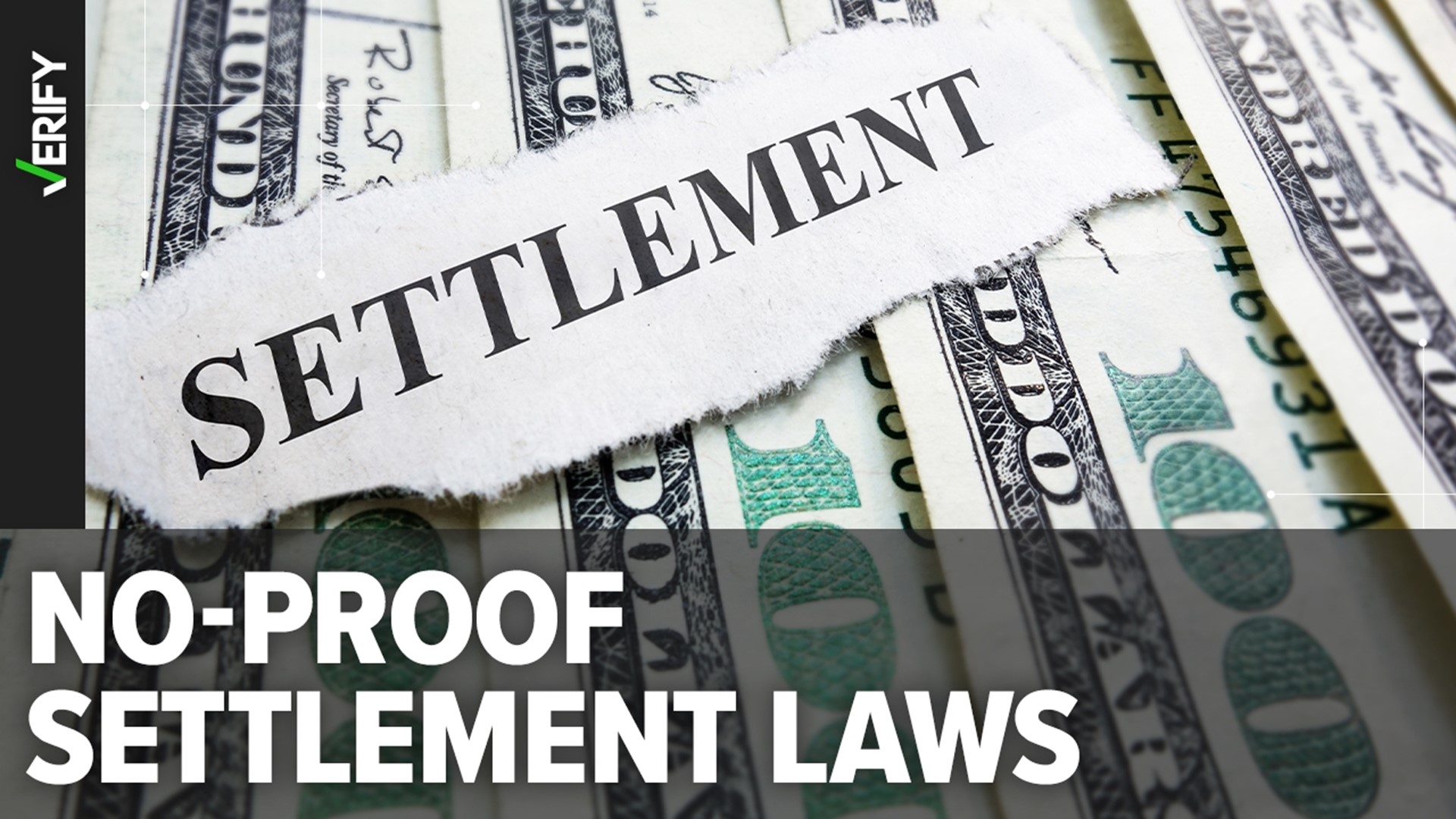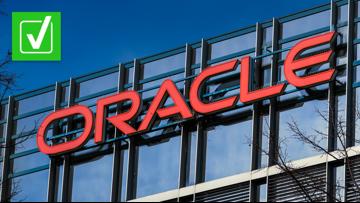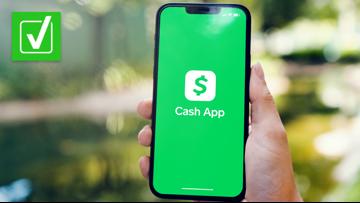Many people get notices in the mail and electronically notifying them that they’re eligible to receive some money from a class action lawsuit settlement. VERIFY readers often reach out to the team with questions about who qualifies for different payments and how to apply.
Some social media accounts and websites dedicated to tracking open class action lawsuit settlements claim some settlements will pay people without any proof they’re qualified.
But is it legal to take part in a no-proof class action settlement if you’re not really entitled to it?
THE QUESTION
Is it legal to take part in a no-proof class action settlement if you aren’t really entitled to it?
THE SOURCES
- Jeff Feldman, J.D., law professor at the University of Washington School of Law
- Certum Group
- Top Class Actions
THE ANSWER
No, it is not legal to take part in a no-proof class action settlement if you aren’t really entitled to it.
WHAT WE FOUND
Our sources say it isn’t legal to participate in a no-proof class action lawsuit settlement if you are not actually entitled to it.
“Under no circumstances is compensation supposed to go to individuals who don't qualify for class participation,” Jeff Feldman, a law professor at the University of Washington School of Law, told VERIFY.
The Spirit Airlines carry-on bag fees $8.25M class action settlement, for example, doesn’t require proof of purchase, but only certain people who flew Spirit are qualified to submit a claim, according to Top Class Actions and the settlement site.
Class action lawsuit settlements are complex because they typically require settlement administrators to send out small payments to millions of people. To simplify the process, Feldman says courts often do not require class members to show proof of purchase to claim small amounts of settlement money because many people don’t keep old receipts.
“A lot of people just don't save their receipts to prove that they purchased something a year or two years earlier,” Feldman said. “So it's a way in which people who may have been economically harmed by the conduct, but can't prove it with a receipt, can get some compensation.”
Top Class Actions explains that settlement class members without proof of purchase typically receive less valuable benefits than individuals with proof. For example, those without proof may be limited to a smaller payout or be offered only the option of receiving product vouchers instead of a cash payment.
Top Class Actions warns against submitting a claim if you do not qualify for a settlement. That’s because the potential risk of submitting a fraudulent claim is being charged with fraud or perjury. However, Feldman says it’s unlikely you’ll be caught for claiming a one-off settlement you’re not entitled to.
“If you don't meet the definition of who is inside the class, you’re not supposed to theoretically receive compensation. But there are lots of circumstances where you can be qualified for compensation, even though you can’t prove when and where you purchased something,” Feldman said. He added that the manufacturer or seller may be able to go into their system and prove you are eligible to receive payment.
A more common problem for no-proof settlements is bots. In recent years, sophisticated bots from organized crime groups have been attempting to take advantage of the system by submitting fraudulent settlement claims, according to Feldman and the Certum Group, a class action litigation firm.
“It's a big, big, big problem,” Feldman said. “The people that are hired to administer the settlement, they get paid — and when they have to sort out hundreds of thousands of phony claims, that jacks up the cost for everybody and ultimately comes out of the total amount of the settlement that’s available even for people who are entitled to it.”
If you’re unsure if you qualify for compensation from a class action settlement, Top Class Actions recommends reading the FAQ section on the settlement administrator’s website to make sure you meet all eligibility standards.












